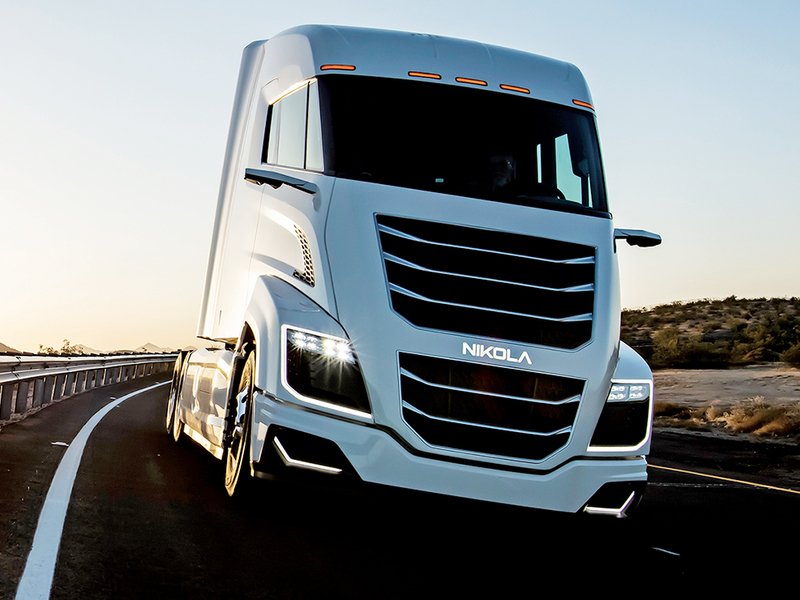
Nikola Corp. said in a filing Friday that securities regulators investigating the company issued an additional subpoena in March.
The aspiring truckmaker said the new subpoena issued by the U.S. Securities and Exchange Commission on March 24 relates to its projected 2021 cash flow and how it plans to use funds from capital raises this year. The company, which had previously disclosed investigations by the SEC and the Department of Justice, said it’s committed to complying with all investigations.
The company also disclosed that it paid $3 million in legal fees in the first quarter for Trevor Milton, its founder and former executive chairman, who resigned in September. The payments were made under the terms of an indemnification agreement.
Quarterly earnings
The Phoenix-based company also on Friday reported a net loss of $120 million for the first three months of the year, widening from a $33 million loss a year earlier. Adjusted earnings before interest, taxes, depreciation and amortization came in at a loss of $53 million, compared with a $29 million loss a year earlier.
Nikola said in a statement it’s nearing completion of a second batch of battery-powered prototypes and has begun the assembly of a fuel cell test vehicle at its headquarters in Arizona.
The company has yet to build a vehicle for sale but wants to establish itself as a competitor in the emerging clean-energy commercial truck market. It has been dogged by allegations it misled investors, something an internal probe partially confirmed.
While not yet revenue-generating, Nikola plans to launch its first hydrogen-powered fuel cell truck in 2023. It also plans to start production of battery-electric trucks this year in Germany in a joint venture with CNH Industrial NV’s Iveco unit and start deliveries in the fourth quarter. And the company has said it’s on track to complete the first phase of a factory under construction in Arizona by year-end, with trial production starting in July.
“We have had continued success in commissioning and validating the Nikola Tre BEVs, and are nearing completion of both our Ulm, Germany and Coolidge, Arizona manufacturing facilities,” Nikola’s CEO Mark Russell said in a statement.
Nikola is one of several players seeking to commercialize hydrogen fuel cell powertrains for long-distance transportation. Others include larger rivals such as Toyota Motor Corp., Hyundai Motor Co. and General Motors. GM, which scaled back its once-ambitious plans to partner with Nikola, still plans to supply the startup with its proprietary fuel cell technology.
Hydrogen Fueling Stations
Production of short- and long-range fuel cell trucks is expected to start at the Arizona plant in the second half of 2023 and 2024, respectively. Nikola also plans to develop as many as 700 hydrogen stations in the U.S. to power the trucks and originally promised to find a co-development partner in 2020.
Last month the company signed a deal to build hydrogen fueling stations with TravelCenters of America Inc. The deal was a small sign of progress on its business plan after several blown deadlines for announcing a partner. Nikola announced a letter of intent Thursday to supply Total Transportation Services with 100 trucks — 30 battery-electric and 70 fuel cell big rigs — by 2023.
Nikola said it still aims to find additional hydrogen infrastructure partners this year, as well as more fleet customers to test its vehicles.
The company said it aims to deliver 1,200 BEV trucks next year and 3,500 in 2023. In February, Nikola lowered its target for delivering battery-electric Tre semis to customers this year to 100 vehicles, down from a previous target of 600. It lost a major order in December when Republic Services Inc. canceled a non-binding contract for 2,500 battery-electric garbage trucks.

